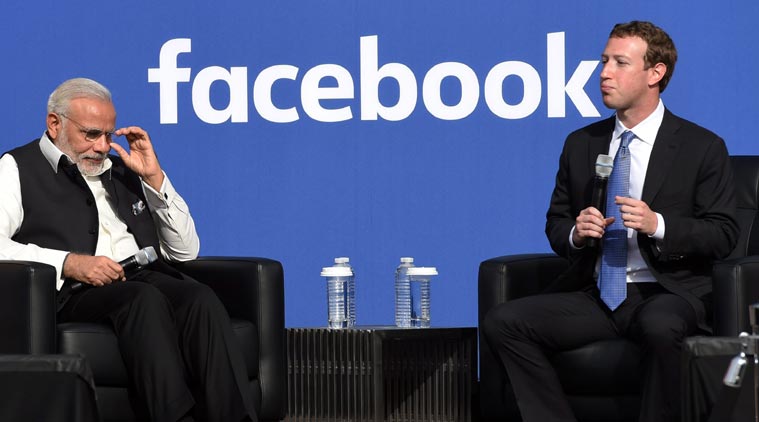Why is “Net Neutrality” important?
In order to discuss this subject, one needs to understand just exactly what it is, as both sides in the debate are guilty of obfuscating what it means in order to promote their positions, both relying upon the same language of “Liberty” and “Freedom” to describe their respective views.
For example, the anti-Net-Neutrality (“Anti”) camp views regulations like those recently enacted in the USA as infringing upon their businesses’ “freedom” to run their private corporations in the way that they want. For example, these telecommunications giants want the ability to give different Internet speeds to different content, such as allowing for faster access to advertising and “premium” services, while slowing down others (like for example…their competition).
These corporations make the compelling argument that they own the “pipes”, or the infrastructure, that is necessary for the Internet to work, and that their physical hardware is then being used without their full control.
On the other hand, the pro-Net-Neutrality (“Pro”) camp views the ideas promoted by these corporations as “Orwellian”, and sees the end-result of this kind of lack of regulation as stifling of free speech. They worry that if private corporations are allowed to dictate what speech is given priority over others, then the “level playing field” that was established by the rise of the Internet will disappear, and be replaced by advertisements and speech only for the rich.
Since the USA is often viewed by the world as the leader in terms of “Free Speech”, America’s rise or fall in this realm will be closely watched by the populations of many countries, as well as by those seeking to limit such speech. Now that the Federal Communications Commission (FCC) in the USA has effectively enacted Net Neutrality, the Pro position has firmly taken the lead.
However, it remains to be seen if this is just a “setback” for the Anti forces, particularly in places like India.
Things have changed in India a great deal during this decade. According to the World Bank, the percentage of people with Internet access in the United States has grown from 71.7% in 2010, to 84.2% in 2013. The corresponding growth in India was from 7.5% in 2010, to more than doubling in 2013 to 15.1%.
However, according to the CIA’s World Factbook, when one looks at the sheer number of Internet users, the USA was #2 in 2009, with 245 million users, while India was #6, with 61 million users. Fast forward to 2013, and India rises to #3, according to Statista, with 154 million users, compared to the USA’s 263 million. And then in 2014, India rose even higher, to 243 million users, nearly catching up to the USA’s 279 million. (Of course, the #1 position has been held by China for many years.)
Essentially, in the past 5 years, India has added approximately 182 million Internet users. That’s a big deal.
And since India has also experienced a great deal of political and governmental change over those years, it remains to be seen how the telecommunications industry will react.
The laws regarding free speech in India are far more Authoritarian than in the USA, particularly in regards to religion. As someone born and raised in the United States, I tend towards the more American perspective here.
Personally, I think that ideas and points of view are best settled through debate in the open, rather than through arrests and lawsuits.
So while I may be offended when someone criticizes my religious beliefs in Sanatana Dharma, I feel that the best response is to either present a logical explanation of why that criticism is wrong…or just laugh at the offender, as his childish insults cannot damage the oldest religion on the planet.
As the great American writer, Mark Twain once quipped, “Against the assault of Laughter nothing can stand.”
Of course, the other side of that is that other religions, besides Sanatana Dharma, must be open to criticism and ridicule in order for this kind of free speech to be possible.
And frankly, from an outsiders’ perspective, I do not see that happening at the moment in India. For example, one need only look at the December event where the All India Bakchod Comedy Company (AIB) was forced to apologise to Christians for making jokes about Christianity. And heavens forbid that anyone criticise Islam!
And now, let me turn your attention to the state of education in India. Yes, I know this might appear to be unrelated, but let me explain. As you are well aware, the Christian organisations set up by the British invaders have largely retained a near monopoly on education in India.
Even wealthy Hindu families often find themselves having to send their children to be educated at Christian schools in order to ensure that they are properly educated. Unfortunately, a lot of them are im-properly educated as well, having Christianity force-fed to them, or at the very least, seeing their ancestral beliefs and traditions ridiculed and demeaned.
Now look at the telecommunications industry in India. Look at all the foreign names. American, European, and even Russian companies occupy a large share of the Internet provider market in India. Now yes, most of the time, Western corporations function with profit as the highest motivation…but this is not always the case. American companies like Chick-Fil-A, Hobby Lobby, and even Domino’s Pizza are just a few examples of organisations that are Christian-run, and which use their money and clout to promote Christianity.
Even in the USA, the second biggest owner in the generally Conservative Christian news outlet Fox News is…Saudi Arabian Prince Al-Waleed bin Talal? Imagine if wealthy Muslims from Pakistan, Iran, Saudi Arabia, etc., were to start taking over telecommunications companies in India.
Without Net Neutrality, they could effectively “censor” pro-Indian or pro-Hindu content, and flood the Internet with Islamic sentiment.
Yes, at this point, this is all speculation…but at this point, everything with regards to Net Neutrality is speculation, as the Anti side has not been able to implement their plans. Frankly, I do not wish to take such a gamble. I like the Internet as it already is, even with its “warts”.
By Bryon Morrigan ( Niti Central )
Bryon Morrigan is a lawyer living in Florida. In addition to his law degree, he also holds a master’s degree in Ancient History, and also formerly served in the US Army as a military intelligence analyst. His novels ‘Acheron’ and ‘The Desert’ are available at most online booksellers.






























